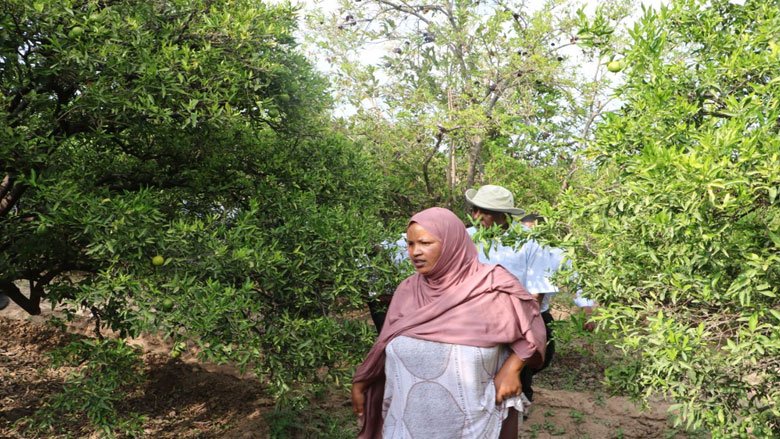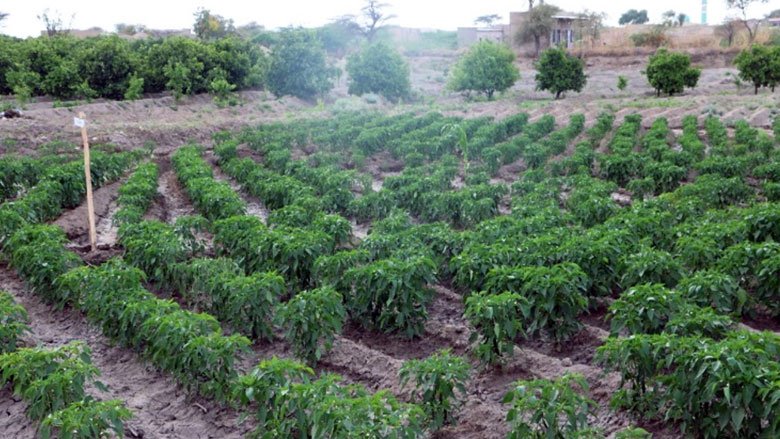ADDIS ABABA, April 25, 2023 ¨C Malika Ahmed, 34, and her husband and two children, are residents of Genderige kebele in Dir Dawa City Administration¡¯s rural area. A founder and member of the Hamilton Fruit and Vegetable Production and Horticulture Seedling Suppliers Farmers¡¯ Cooperative, her family is among the millions of smallholder farmers benefiting from the World Bank-supported in Ethiopia.
The Genderige kebele is known for its production of fruits and vegetables and for export to foreign markets like Djibouti and Somalia. Since 2005, however, the area has been impacted by climate change, with recurrent drought, resulting in a sharp decline in the production of fruit and vegetables that is pushing residents into poverty.
The Hamilton Fruit and Vegetable Production Farmers¡¯ Cooperative was established five years ago. It is led by the strong, hardworking female farmer, Malika Ahmed, who is working to overcome this climate challenge in the area.
Malika, who was in school up to 8th grade, said the fact she had more education than her fellow farmers had pressured her to feel responsible for trying to solve both her and her neighboring farmers¡¯ common challenges of access to water and improving their technical know-how to advance their productivity and production.
Pulling together their resources would help them, she thought, to get their voices heard and to find the support they needed. Malika, along with sector office support, established a cooperative. Her cooperative has eight women members and 17 men. She serves as chairperson and assumes responsibility for the extra work needed to take care of the cooperative and its relations with different sector offices and institutions.
The cooperative owns 25 hectares of agricultural land and grows crops including oranges, tomatoes, onions, and peppers. Twenty-one hectares are planted with orange and mango trees; the remaining four hectares are sorghum. Two shallow wells, constructed with money from member contributions, have not been enough for the cooperative to fulfill its vision of producing more fruit. In fact, due to a water shortage, the cooperative is currently farming only 11 hectares of its land. The main factors limiting its capacity are a lack of electricity, the high cost of fuel, a lack of supplies of improved seeds, and the shortage of water, as well as a dip in pepper production due to a fungal disease.
However, with the support of the Bureau of Agriculture, Water and Sewerage, and Mines and Energy, the cooperative has been able to drill a 175-meter-deep well, get its hands on generators and improved seeds, and find technical training and expertise.


